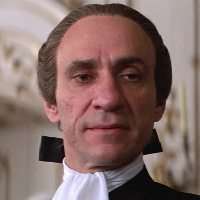Wolfgang Amadeus Mozart type de personnalité MBTI
Personnalité
"Quel type de personnalité est Wolfgang Amadeus Mozart? Wolfgang Amadeus Mozart est un type de personnalité ENFP dans MBTI, 7w6 - sx/so - 749 dans Enneagram, SCUAI dans Big 5, IEE dans Socionics."
The debate between ESFP and ENFP, here as for the real Mozart, is understandable. On one hand, there's the impulsivity, the excess, the sensory indulgence, the effortless performance dexterity. On the other, there's the extraordinary creativity, the disregard for convention apart from as a springboard for invention, the desire to create based on ideas and feeling rather than social expectation, the open-mindedness. I'm not going to wade in on the historical figure here, but I will say that some similar arguments might be made about him. I'll occasionally point to things the film implicitly assumes are known about the real Mozart, which inform how we're meant to read him. Here's why I'd argue that Amadeus's fictionalised Mozart is an ENFP: Typing involves thinking not just about what people or characters do, but why. What reasons does Mozart have for his excesses and physical dexterity, and for his creativity and open-mindedness? The film makes clear that the former are circumstantial. Mozart was a child star: spoiled, exploited, and put under enormous pressure by his musician father. His entire childhood was concentrated on performing music, explaining his remarkable dexterity. It also lacked stability and involved being carted around to entertain at endless parties; the world of leisure was where Mozart felt comfortable and liked. In the film, he initially drinks and parties a lot because he isn't practical, because he likes to socialise (as ENFPs often do, even if Ne is less socially extraverted than other extraverted functions), and, crucially, because these excesses have always been entirely ordinary for him. Later, he drinks and parties excessively to quiet his mind; more on that below. The creativity, the disregard for convention, the desire for his ideas and feelings to coalesce in his art - these things don't derive from circumstance nor serve anything apart from an insatiable inner need. As a child, his father gave him the tools to be a good musician, but the particular passion for creative invention came from him. As an adult, his father wants him to be practical and respected, but despite desperately craving his approval, Mozart can't give up what matters to him conceptually. If he wrote the kind of music that kept him in favour with the powers that be and the general public, he'd have his father's respect and a steadier income. Salieri reminds him that Marriage of Figaro closed early because it was too unconventional. Mozart knows it, but he can't help it: breaking convention is what makes the music good, and creating good music is what matters to him more than anything else (more than any sensory pleasure). Don Giovanni, wildly unconventional and this time miserable too, is even more of a failure. Amid his misery - deriving partly from his father's death but partly from having been rejected by society in his refusal to conform to it - he attends a pantomime parody of his work at a common theatre. He's delighted by this creative reimagining (unlike Constanze, who feels it destroys the original). He's also delighted by how working class people are enjoying it and singing along, because his open-minded worldview sees no distinctions in what art forms are for whom or where they should be performed. He just wants his music to move everyone like it does him. That same open-mindedness is why he was content to set something prestigious in a brothel and to turn a banned play into an opera, and why he's excited to write The Magic Flute for this new audience. These are the things shown to drive him to fervently create. Sensory experiences don't drive him; they offer escape, particularly as he becomes ever more imprisoned by his creativity. This is encapsulated when we hear what he hears, his musical invention overpowering his recognition of external reality (quite unlikely for an Se dom). He escapes to party, just to retreat from his own head. But actually, we know Mozart's an Ne dom in his first sequence. Salieri's playing a game with himself to see if he can identify Mozart in the crowd. He encounters him playing around on the floor with Constanze. But it doesn't occur to him that this is him: he sees a hedonistic, indulgent child, and he's already decided that creative talent is a gift from God as thanks for servitude. This man represents everything he has denied himself to gain the creative talent he desires. But the writing is on the wall: of course one could identify Mozart amid the crowd, and of course this man is him, because he's inventing a wild scenario on the spot where everything happens backwards, and is just riffing on this idea on a whim, speaking backwards off the top of his head. That's what *really* signals a talent for writing original music (and what really defines Mozart): a wildly creative and imaginative mind. To interpret Mozart as an ESFP is to repeat Salieri's mistake here, defining him by the less indicative parts of himself.
Biographie
Personnalité correlate

Antonio Salieri

Constanze Mozart

Emperor Joseph II

Leopold Mozart

Katerina Cavalieri

Emanuel Schikaneder

Lorl

Priest
















